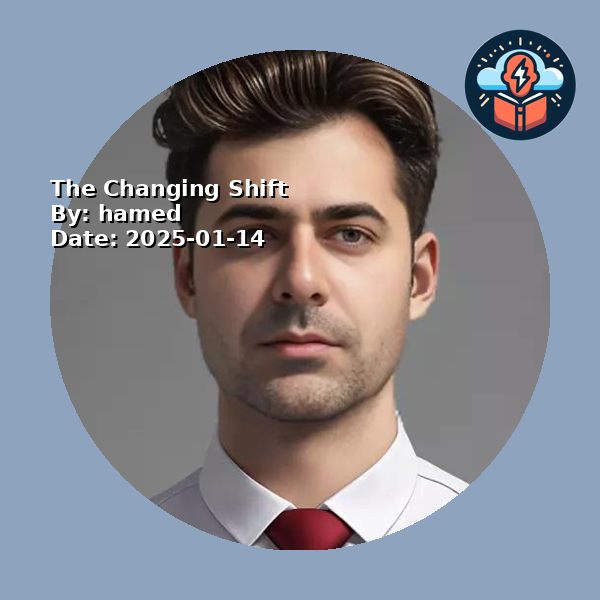Rafael wiped his forehead with the back of his hand, squinting at the conveyor belt that stretched before him. The hum of machinery filled the factory, a relentless buzz that had been his soundtrack for the past eight years. He adjusted his gloves, eyes flicking to the monitor above, where the digital readout of his daily quota flashed. Only a few more hours to go. A normal day, or so it should have been.
As he moved down the line, inspecting parts, tightening screws, a loud beep interrupted his routine. His stomach lurched. He knew that sound.
The robotic arm in the corner of the factory, one of the many that had been installed over the past few years, had malfunctioned. It was supposed to be performing his job—fixing the bolts and ensuring every part was secured properly—but now it was stuck, its metallic arm twitching in place.
"Not again," Rafael muttered under his breath. He moved over to troubleshoot, tapping a few buttons on the console. As the mechanical arm whirred back to life, his thoughts drifted. He had been doing this same job for so long, fixing and inspecting, checking the same parts day in and day out. It wasn’t glamorous, but it paid the bills. Until the robots came.
When the factory first introduced the machines, Rafael had been skeptical, but he'd accepted the change. They promised fewer mistakes, higher efficiency, and more output. He understood it. After all, who wouldn’t want a machine to do the heavy lifting?
But it wasn’t long before his duties started shrinking. Tasks that once required his expertise had been handed over to the bots. First, it was the routine maintenance of the assembly line. Then, it was the inspection of the machinery. Soon, the whole factory had been automated—except for a handful of workers like him, who still had to make sure everything ran smoothly.
Now, as he fixed the robotic arm, Rafael couldn’t shake the sinking feeling in his chest. The company had made no secret of its plans to reduce the human workforce. The next round of cuts was coming. And Rafael, despite all his years of experience, was starting to feel like he was a relic.
He finished recalibrating the arm and stood there for a moment, watching it resume its work with mechanical precision. The cold, calculated movements felt alien to him. It was like watching something replace a part of himself, the part that once had a steady rhythm, a rhythm he had earned through years of effort and sweat.
The factory manager, Greg, appeared behind him, clipboard in hand. “How’s the line, Rafael?”
Rafael nodded toward the robotic arm. “It’s fine now. Just a glitch.”
Greg raised an eyebrow. "We’re moving on to full automation by next month, you know that, right?"
Rafael turned to face him. “Yeah, I know. But I still have a job, don’t I?”
Greg hesitated, his gaze flicking toward the machines in the distance. “We’re not sure yet, Rafael. The new system is designed to be fully self-sustaining. Management is evaluating what roles are still needed.”
A lump formed in Rafael’s throat. He could feel the walls of his world closing in, the ground beneath him shifting.
He had known, deep down, that this moment was coming. Everyone did. It wasn’t just the factory, it was everywhere. Machines, robots, artificial intelligence—rising, taking over, becoming better, faster, more efficient than anything human hands could do.
But there was a difference between knowing and feeling it.
“Thanks, Greg,” Rafael muttered, his voice heavy. He turned back to the machines, the same machines that had been his companions for so long, now the tools of his own obsolescence.
He worked the rest of his shift in silence, the sound of the automated arms clicking and whirring around him. Each sound felt like a reminder of his fading relevance. By the time his shift ended, the factory floor felt emptier than it ever had. The workers who remained were silent, lost in their thoughts, eyes glued to screens or watching the robots do the work they once did.
Rafael gathered his things slowly, feeling the weight of every step. As he walked out the door, he took one last look at the assembly line, where the robots had taken over. He couldn’t help but wonder how much longer he would be part of this world, how much longer there would be a place for people like him in a world that was rapidly losing its need for human hands.
The factory lights flickered above him as he stepped into the dark.
